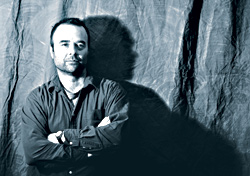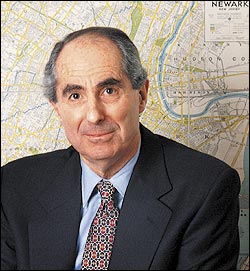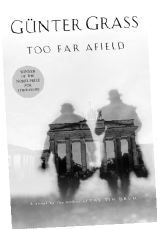For a man born in sunny Santa Monica, Calif., and raised in, among other places, the heartland of Indiana, William T. Vollmann has displayed a remarkable ability to put himself in harm’s way. He’s sought out and explored the world’s most impoverished and brutalized people, then written about them in a way that, unlike so much media coverage today, allows them their honor, dignity, complexity, and pathos.
Shortly after graduating from Cornell University in the early ’80s, Vollmann joined up with the mujahideen in Afghanistan to fight the Russian invaders, who he believed were committing acts of atrocity, an experience he wrote about in An Afghanistan Picture Show: Or, How I Saved the World. Long before Dave Eggers would lambaste himself for using the memoir form in A Heartbreaking Work of Staggering Genius, Vollmann performed a hilarious self-evisceration in this 1992 book, mocking himself for becoming a physical burden to people whom he thought he was helping.
Last year, Eggers’ McSweeney’s imprint published Rising Up and Rising Down: Thoughts on Violence, Freedom, and Urgent Means, the seven-volume, 3,500-page “essay” on violence that grew out of Vollmann’s experiences in Afghanistan. Although he is famously prolific (some would say prolix), it is easy to understand Vollmann’s unwillingness to reduce the book’s central question—when is violence justified—to a tidy election-year terror-tie-in title. In the 20 years since he first put his life at risk, Vollmann had returned to America and bedded down with prostitutes and drug pushers in San Francisco, talked with skinheads and gun enthusiasts, Christian fundamentalists and militants. He’s written about these journeys for every magazine in the country, but this, apparently, was a story he wanted to get right—no matter how many pages it required.
At the same time, Vollmann has become a first-class war reporter. If a country is poor or war-torn or riddled with corruption, chances are he’s been there: Iraq, Yemen, Colombia, Burma, Cambodia, Bosnia . . . the list extends beyond Colin Powell’s flight itinerary. I once interviewed journalist Tony Horwitz, who visited Iraq eight times and wrote a pretty good book about it. At the mention of Vollmann’s name, he just shook his head and laughed: “That guy’s crazy.”
There is a point to all that risk, though, as Vollmann explained recently at a New York City reading from the new abridged edition of Rising Up (Ecco, $29.95). I sat in the audience as he cited recent world events that compelled his shorter volume—such as the astonishing and much-debated British estimate of 100,000 Iraqi civilian casualties. He explained: “If we want to change things, each of us has to accept an increased level of risk. If I can talk to the interior minister of the Tali-ban government simply because I brought a copy of the Koran, surely this is not always as hard as it seems.”
Vollmann’s message—that understanding and appreciating foreign cultures is essential to our safety in the world—is an important rebuttal to the Bush administration’s go-it-alone foreign policy. The only problem is, it’s becoming less and less likely Vollmann will be heard through the noise. To put it mildly, Vollmann is an uncompromising stylist. His works combine the arch tone of Hawthorne’s Young Goodman Brown and the gutter-wallowing, hallucinatory prose of the French writer Lautréamont. And then there is their size. Except for his documentary novel, Whores for Gloria, Vollmann’s books routinely top 600 or 700 pages. Even the abridged version of Rising Up exceeds 730 pages.
Which is perhaps a good reason to hear him spell out his arguments in person. For those beleaguered blue-state voters in Seattle, as in New York, who are dismayed by Bush’s ongoing war in Iraq, Vollmann speaks volumes about when violence begets further violence—and when it can legitimately be used to achieve peace. Even if you don’t have time to read his new condensed argument, it’s well worth the risk of an evening to hear him make it himself.
William T. Vollmann will appear at UW Kane Hall, Room 110 (free advance tickets required from University Book Store), 7:30 p.m. Thurs., Dec. 2.








